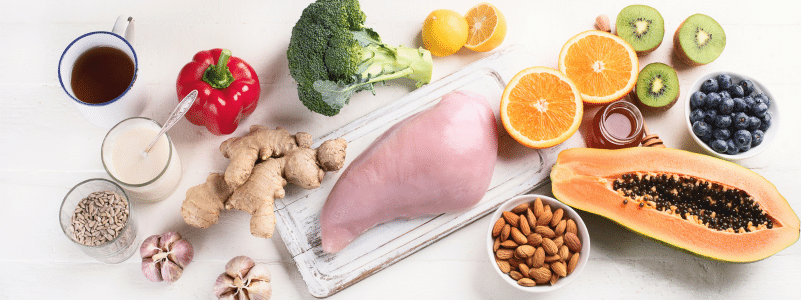
One out of every eight men in the United States “will be diagnosed with prostate cancer,” according to the National Cancer Institute. In fact, it takes second place for the most commonly diagnosed cancer among men.
Out of those diagnosed, many prefer complementary and alternative medicine (CAM) as opposed to treatments such as chemotherapy. While it is best to consult your doctor, nutritionist, and other medical professionals for the best treatment and practices, here’s some general information about how to potentially use supplements to reduce your prostate cancer risk.
What is the best supplement to prevent prostate cancer?
There are a few options considered to be possible preventatives of prostate cancer, though studies are still ongoing about their effects on preventing and treating cancer.
Calcium
Calcium is an essential mineral for hormonal release in our bodies that’s stored in our bones and teeth. You can get calcium from natural sources such as milk, cheese, yogurt, Chinese cabbage, kale, and broccoli. Supplements are also available to increase daily calcium intake.
Green Tea
Green tea, which is typically consumed as a drink, is considered a good source of antioxidants that help prevent cell damage. Supplements are also available as an option.
Lycopene
Lycopene, which is naturally sourced from fruits and vegetables, has had mixed results in studies regarding its effect on preventing and treating prostate cancer. It is best absorbed in the form of tomato paste or puree.
Modified Citrus Pectin (MCP)
Pectin is contained in the peel and pulp of oranges, grapefruit, lemons, and limes. Modified citrus pectin (MCP) makes absorption easier as it is water-soluble. MCP can be consumed as a powder or capsule.
Pomegranate
Pomegranate has been used for medicinal purposes for hundreds of years, though studies are inconclusive about its effectiveness for treating or preventing prostate cancer. You can eat, drink, or take it as a supplement, though dietary supplements are not FDA-approved.
Selenium
Selenium is a mineral stored in the thyroid, liver, pancreas, pituitary gland, and kidneys, and is important for the immune system and reproduction. You can acquire selenium by eating meat, vegetables, and nuts. It is either eaten from natural sources or taken as a supplement. Studies show mixed results about its effectiveness in treating and preventing prostate cancer.
Soy
Soybeans can be consumed in many ways, including:
- Soy milk
- Soy flour
- Oils
- Miso
- Tofu
Studies have mixed results, but soybeans have isoflavones, which attach to prostate cancer cells and may possibly affect the growth and spread of it.
Vitamin D
Vitamin D is acquired by bodily exposure to sunlight but can also be consumed in fish, fish liver oil, and eggs. Some products, such as dairy, may be enriched with vitamin D. Studies show mixed results as it pertains to vitamin D’s effectiveness in preventing prostate cancer.
Vitamin E
Vitamin E fortifies cells from damage and is important for the production of RNA and proteins. It can be acquired through certain foods or taken as a supplement. Study results are mixed.
What does prostate cancer feed on?
According to the Prostate Cancer Foundation, prostate cancer, once formed, feeds upon “androgen and uses them as fuel for growth.” Because of this, treatment for prostate cancer typically attempts to lower androgen levels using “hormone therapy.”
What is the number one food for the prostate?

Because the prostate is a vascular gland containing many blood vessels, it is important to maintain a diet that supports and defends cardiovascular health. Foods that are considered to do so include:
- Tomatoes
- Kale
- Cabbage
- Cauliflower
- Broccoli
- Brussels sprouts
- Bok choy
- Olive oil
- Salmon
- Flaxseeds
- Walnuts
- Brazil nuts
- Almonds
- Berries
- Beans
- Soybeans
- Lentils
Is coffee bad for prostate cancer?
Coffee is considered to be a promising aid against prostate cancer, though the jury is still out on its effectiveness, still requiring clinical trials.
Preventive Health Support with A Nice Apothecary
If you’re in the market for a high-quality supplement provider, we’ve got you covered. With automatic fulfillment and delivery straight to your door, don’t miss a beat in optimizing your long-term health.
Contact us today and get started!
